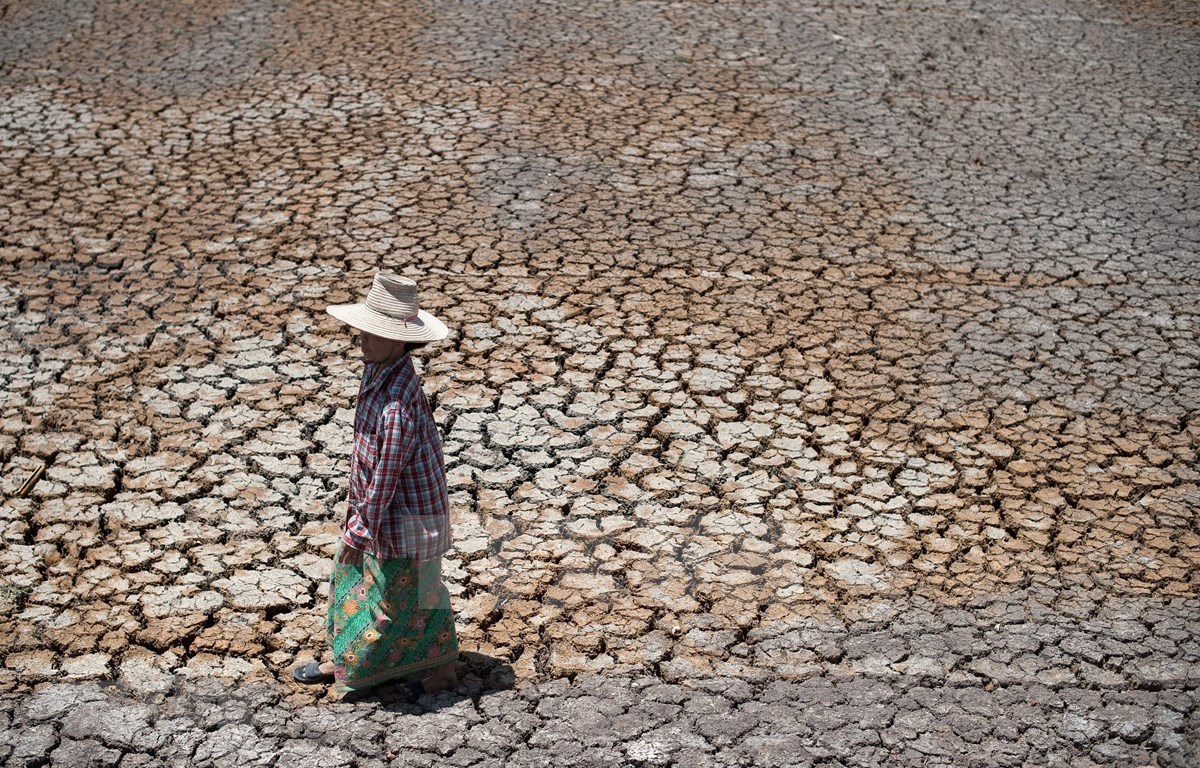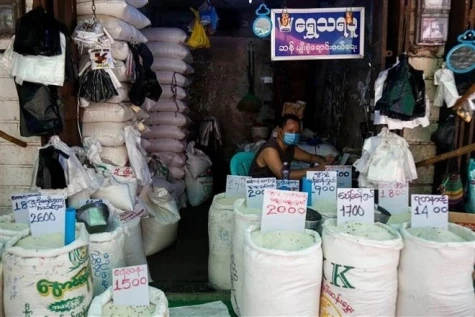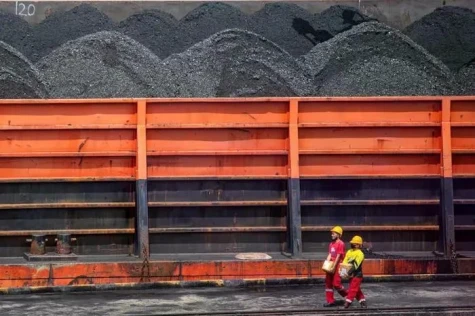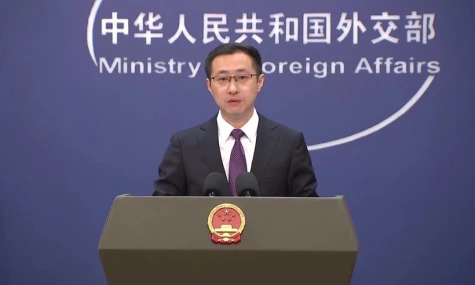The United Nations Economic and Social Commission for Asia and the Pacific (ESCAP) and Association of South-East Asian Nations (ASEAN) have released the Ready for the Dry Years: Building Resilience to Drought in Southeast Asia report.

A drought-stricken drought field in Thailand's Suphanburi Province
In the joint op-ed, Armida Salsiah Alisjahbana, Under-Secretary-General of the United Nations and Executive Secretary of ESCAP, and Dato Lim Jock Hoi, Secretary-General of ASEAN, held that South-East Asia has long endured severe droughts, which occur on average every five years.
The prolonged 2015 and 2018 droughts were the worst on record for two decades. They simultaneously affected more than 70 percent of the land area, with over 325 million people exposed. No ASEAN member States was spared from the devastating impacts including the disruption to livelihoods and food security, as well as forest fires and haze.
The drivers of drought risk in South-East Asia are inherently complex, resulting in considerable year-to-year variations. Drought is heavily influenced by various climatic drivers, mainly the El Niño-Southern Oscillation (ENSO) and Indian Ocean Dipole (IOD). Yet, despite this complexity, clear trends point to an intensifying drought risk across the region.
New analysis of observed data and climate projections in the second edition of Ready for the Dry Years: Building Resilience to Drought in Southeast Asia, a joint report by the United Nations Economic and Social Commission for Asia and the Pacific (ESCAP) and Association of South-East Asian Nations (ASEAN) reveals a statistically significant increase in temperature from 1981-2020, that is expected to continue. This means that drought severity will increase as the climate gets warmer.
This urgency has been enhanced by the COVID-19 pandemic, which has converged with the climate crisis. Both disasters have simultaneously disrupted people’s health, livelihoods and supply chains across the region. These compounding impacts have led to severe economic stress and undermined the ability of the region to deal with current and future disaster risks. It is crucial that we understand how recurrent droughts and the current pandemic are interacting, to identify appropriate policies that can address these crises simultaneously.
ASEAN and ESCAP are working together to prevent the destructive impacts of droughts by promoting a paradigm shift towards more adaptive drought risk management and governance. This cooperation is anchored in a forward-looking, science-based approach to drought risks. The adaptive policy interventions must support the most vulnerable and those furthest behind in the region.
The latest evidence shows that 15 to 25 percent of the region’s population lives in drought hotspots, with low levels of socio-economic development and high exposure to recurring droughts. Targeted policy interventions in these areas will be essential to prevent the cumulative impacts of recurring droughts, which over time, pose a serious threat to hard-won development gains, particularly the achievement of the Sustainable Development Goals.
These interventions must follow three clear policy tracks to reduce and prevent droughts from occurring; prepare and respond to droughts when they happen; and restore and recover after a drought has passed. Accordingly, they should cover a wide range of policy areas, from the management of food, water and energy systems, to the implementation of early warning systems and drought risk financing.
Governments should capitalise on several opportunities to meet this challenge. Firstly, the cyclical and slow-onset nature of drought provides time for us to take risk-informed actions now, to prevent a drought hazard from becoming a crisis.
Secondly, governments can benefit from ASEAN’s extensive experience and expertise through greater regional cooperation, driven by ASEAN’s agenda on drought and the newly adopted ASEAN Declaration on the Strengthening of the Adaptation to Drought.
Thirdly, the COVID-19 pandemic offers an opportunity to act now to reduce the impacts of future droughts, by incorporating measures to build resilience into COVID-19 recovery stimulus packages.
“The latest developments in science and technology will underpin the successful scale up of drought management interventions. ASEAN member States must take concrete steps now to strengthen national and regional drought monitoring and improve our understanding of the causes of drought. It is now more vital than ever for the region to build resilience to drought. By working together, we can mitigate the impact of future droughts and ensure that the entire ASEAN Community will be ready for the dry years ahead,” said the report.
On this note, strong partnerships between the United Nations, ASEAN and national governments and other stakeholders are essential to deal with the increasingly complex and uncertain extreme weather and climate situations along with the impacts of transnational slow-onset disaster risks.
“ASEAN and the United Nations have enjoyed fruitful cooperation through implementation of the Comprehensive Partnership and the Plan of Action. This joint ASEAN-ESCAP work has reflected our cooperation and partnership for the benefit of our peoples.”./.
VNA





























